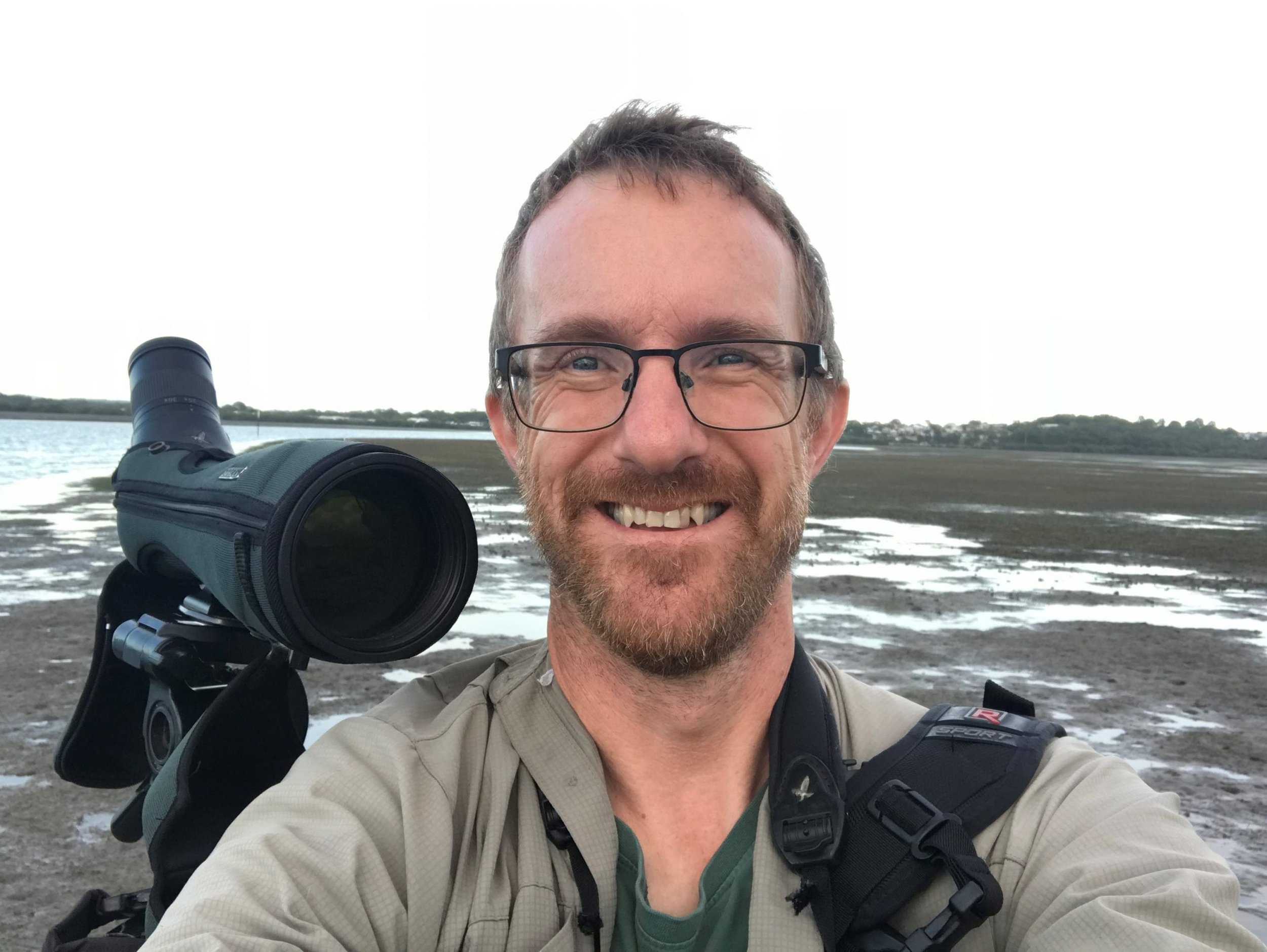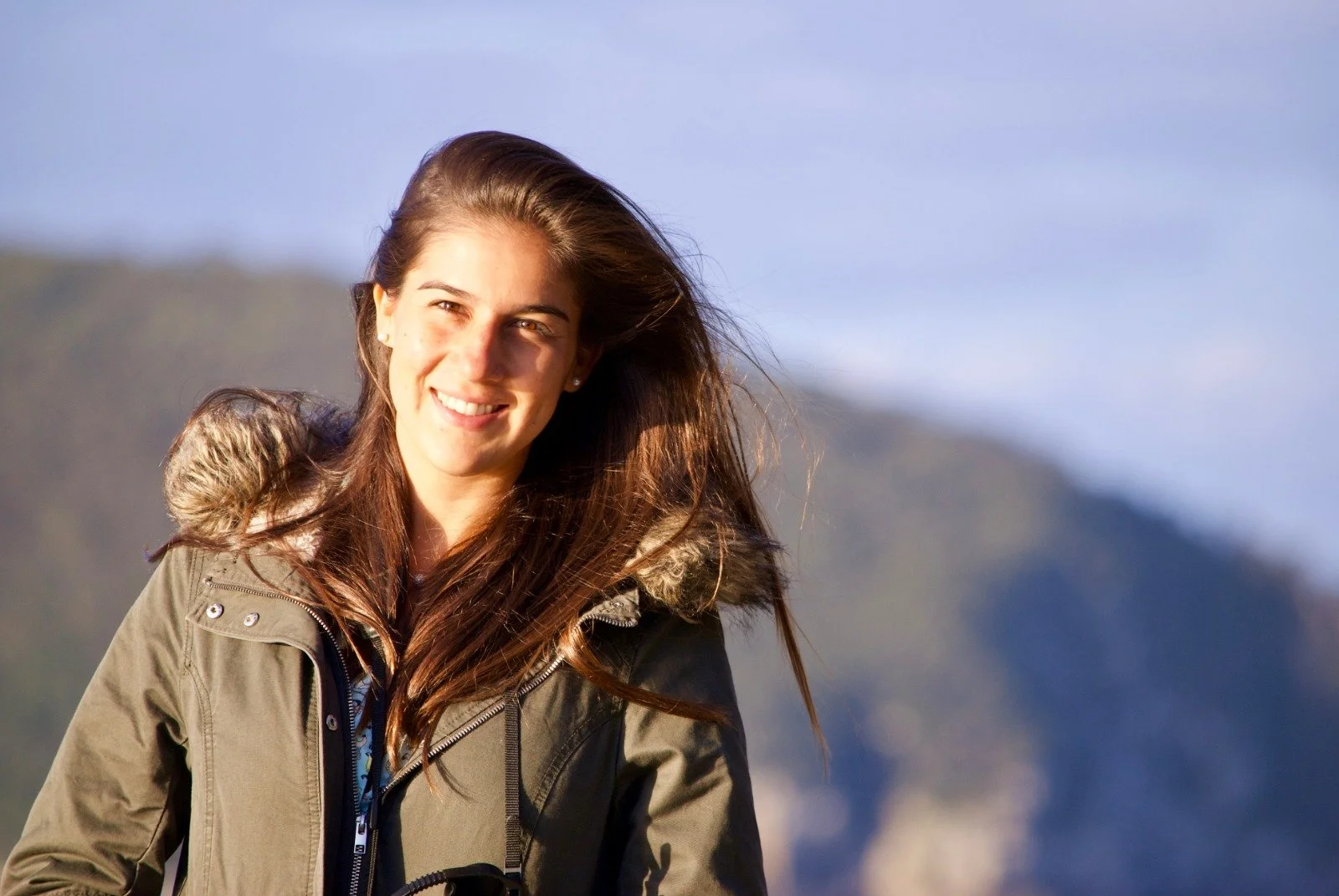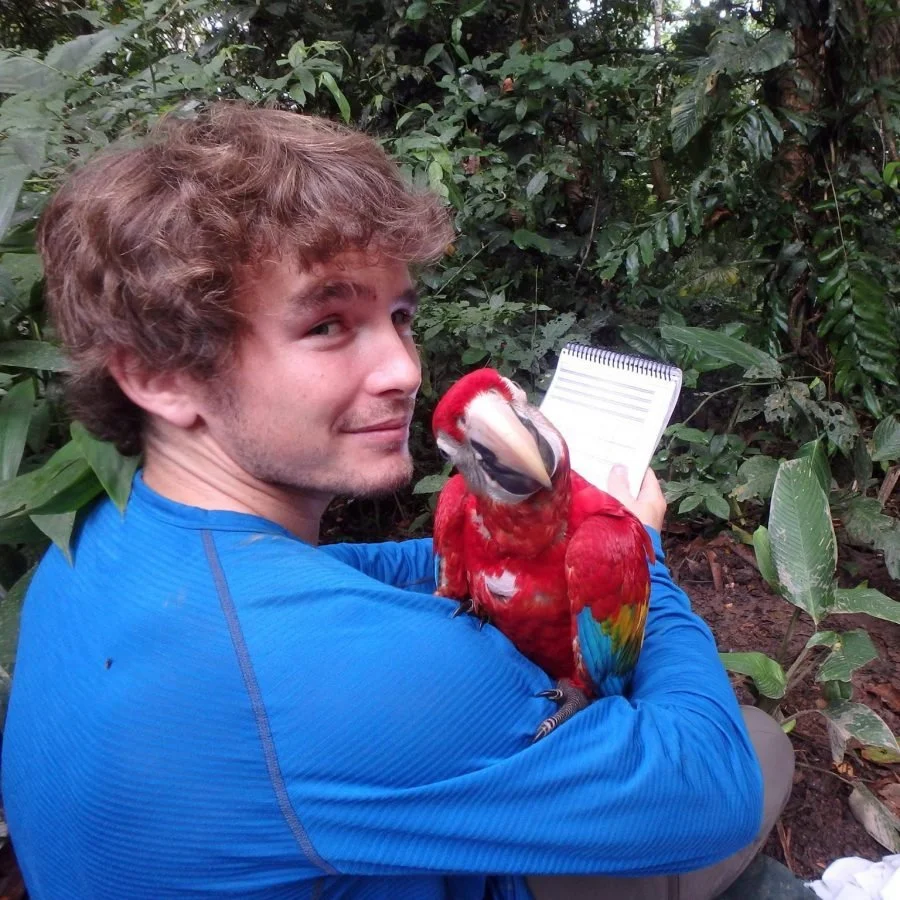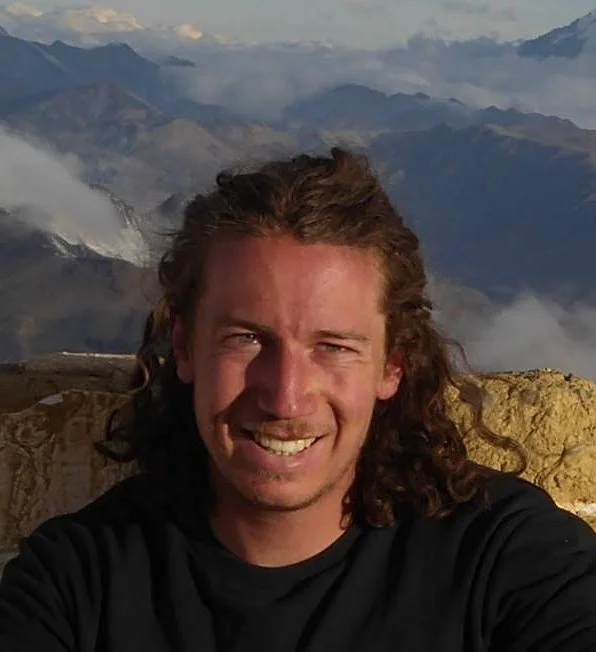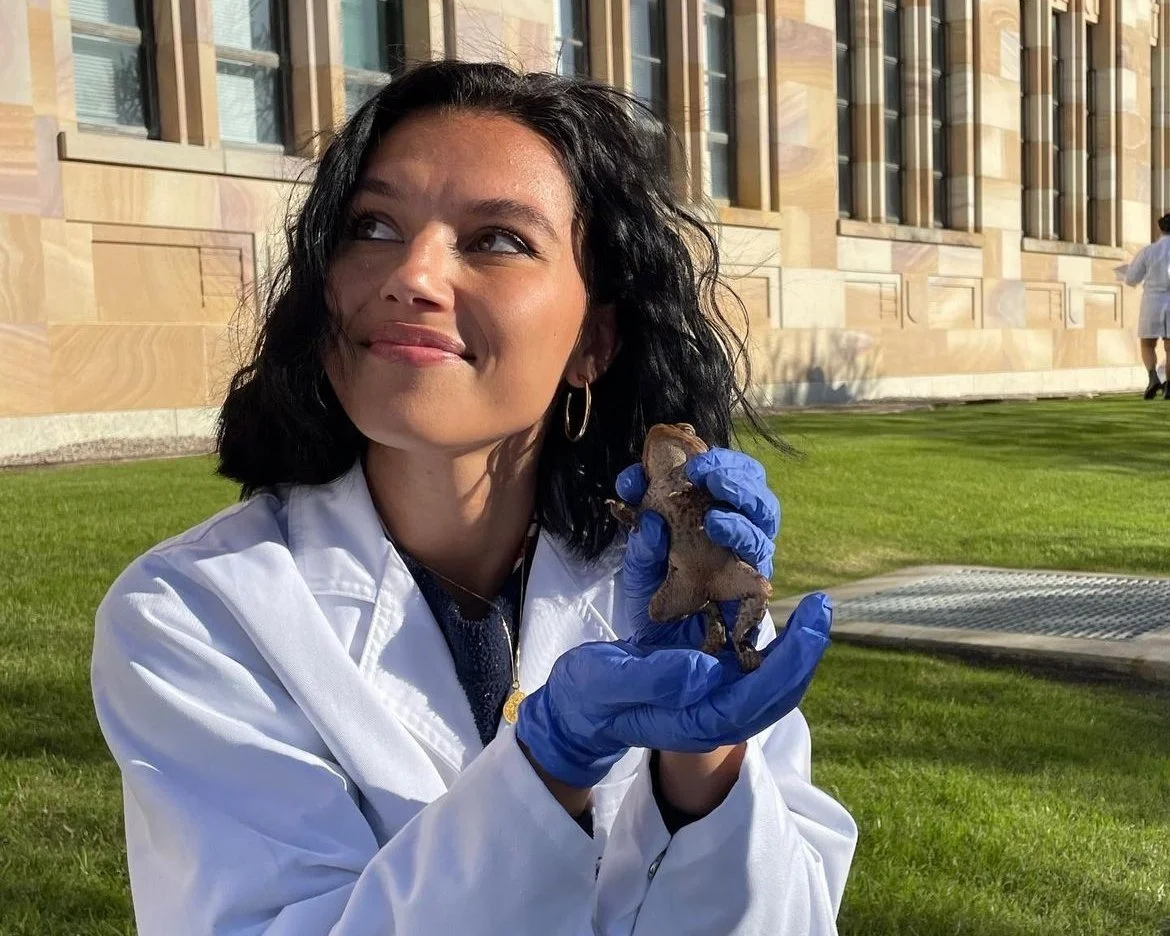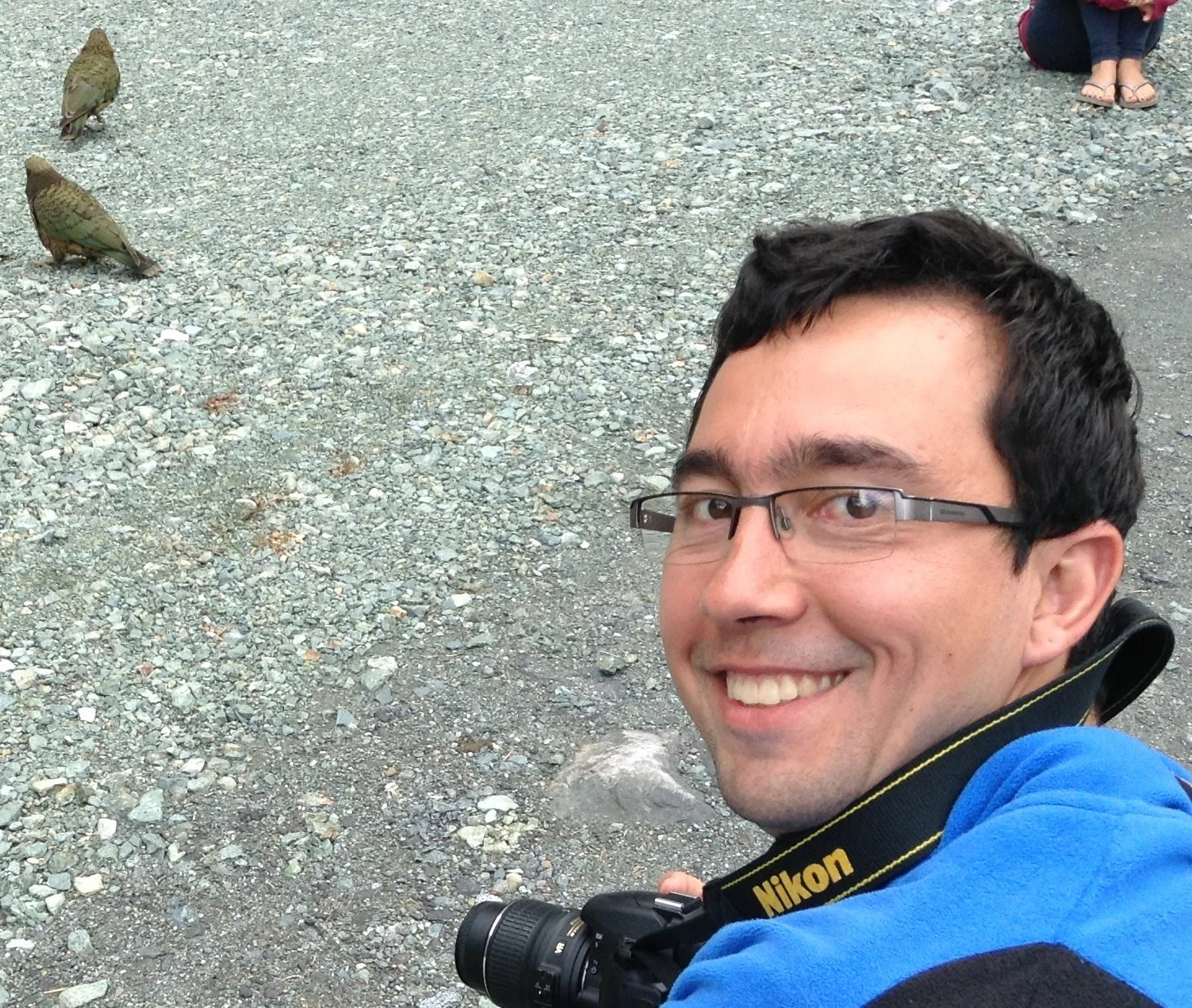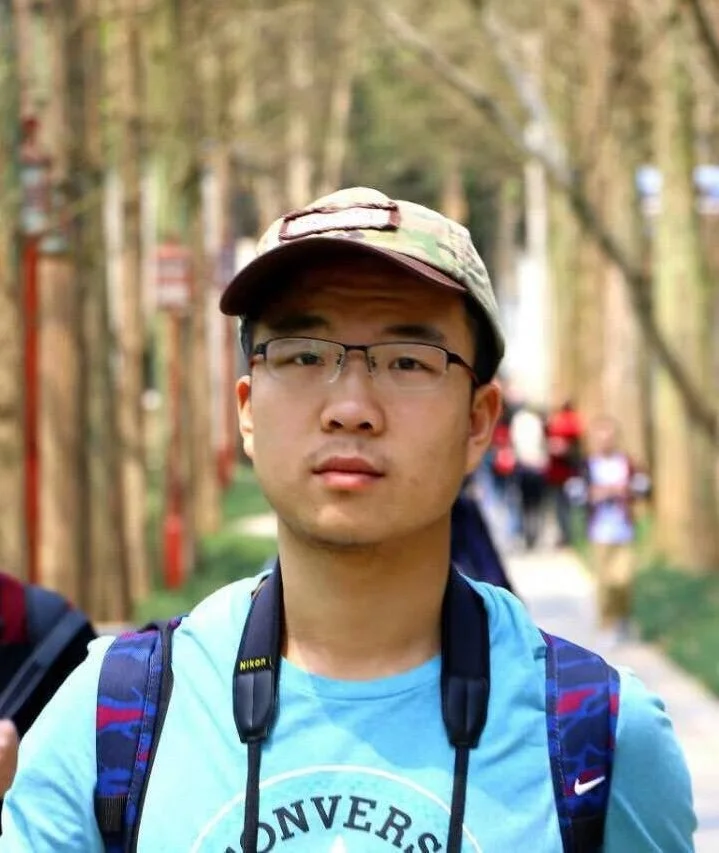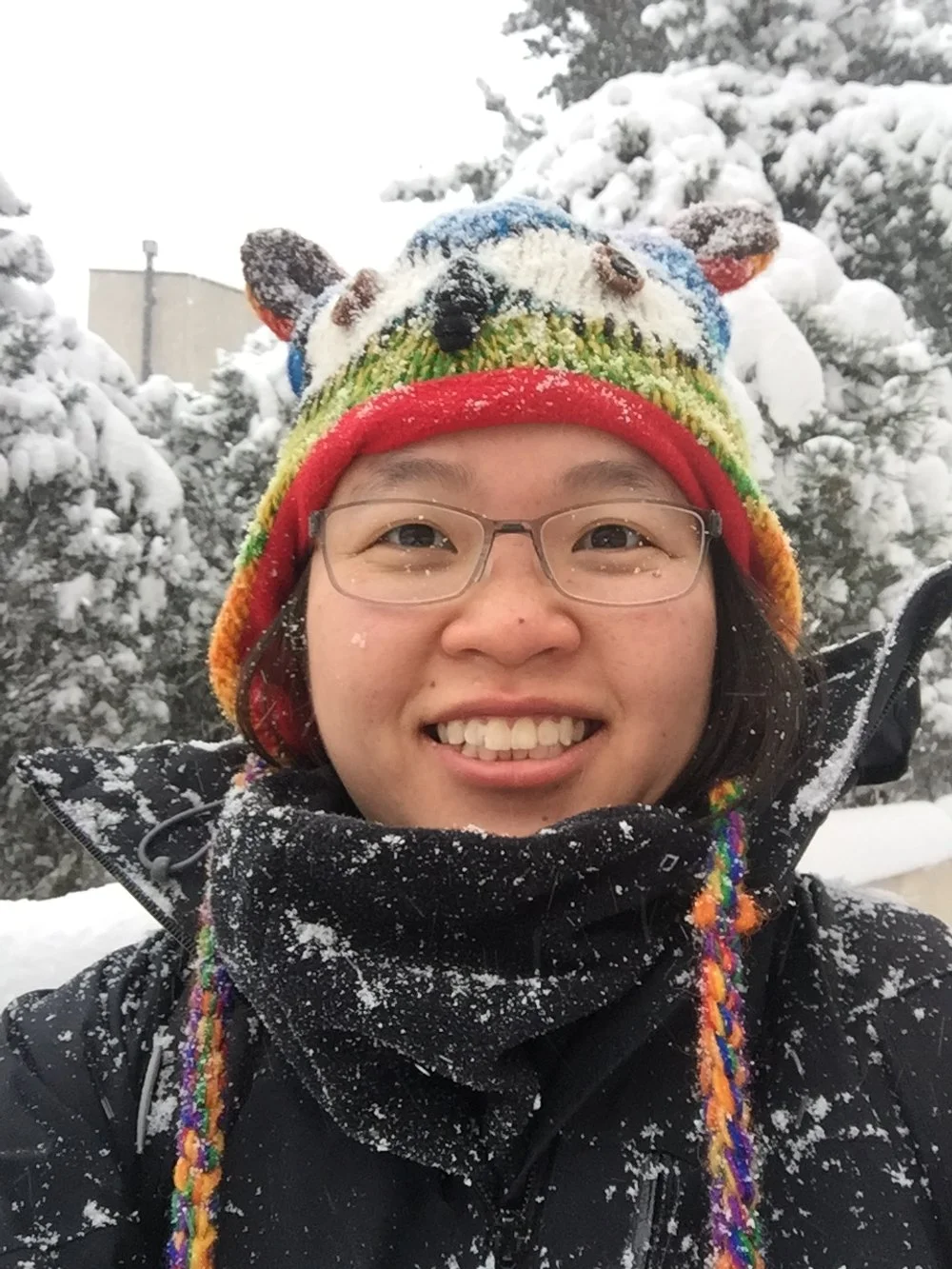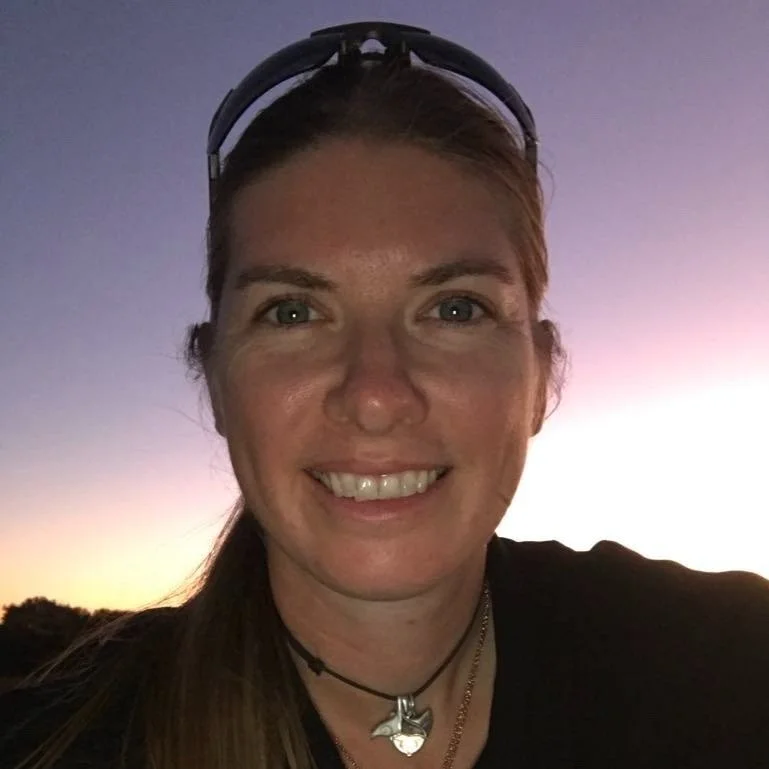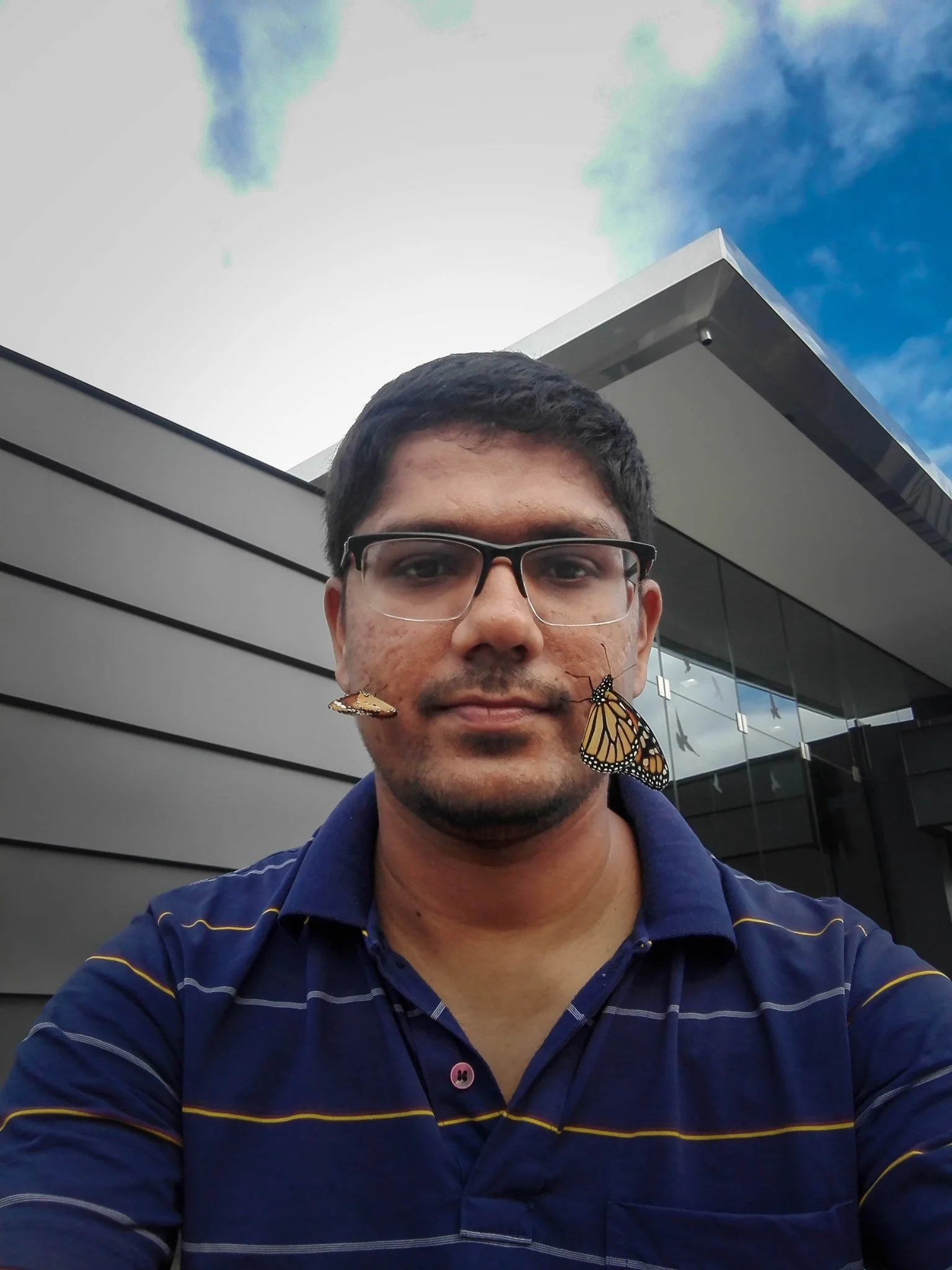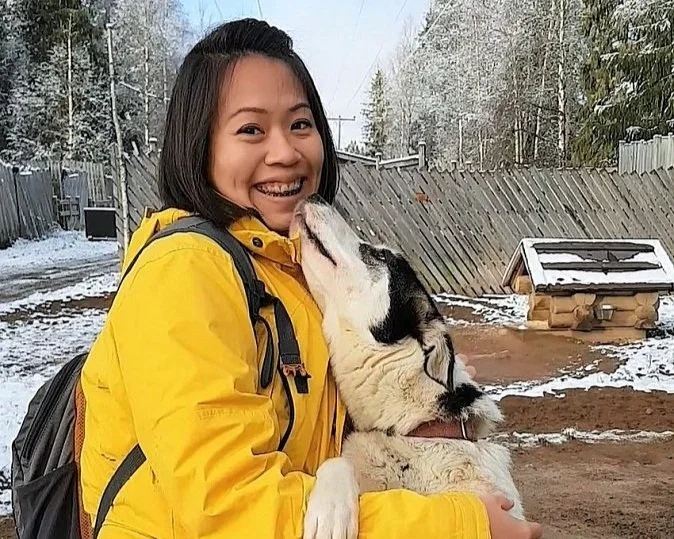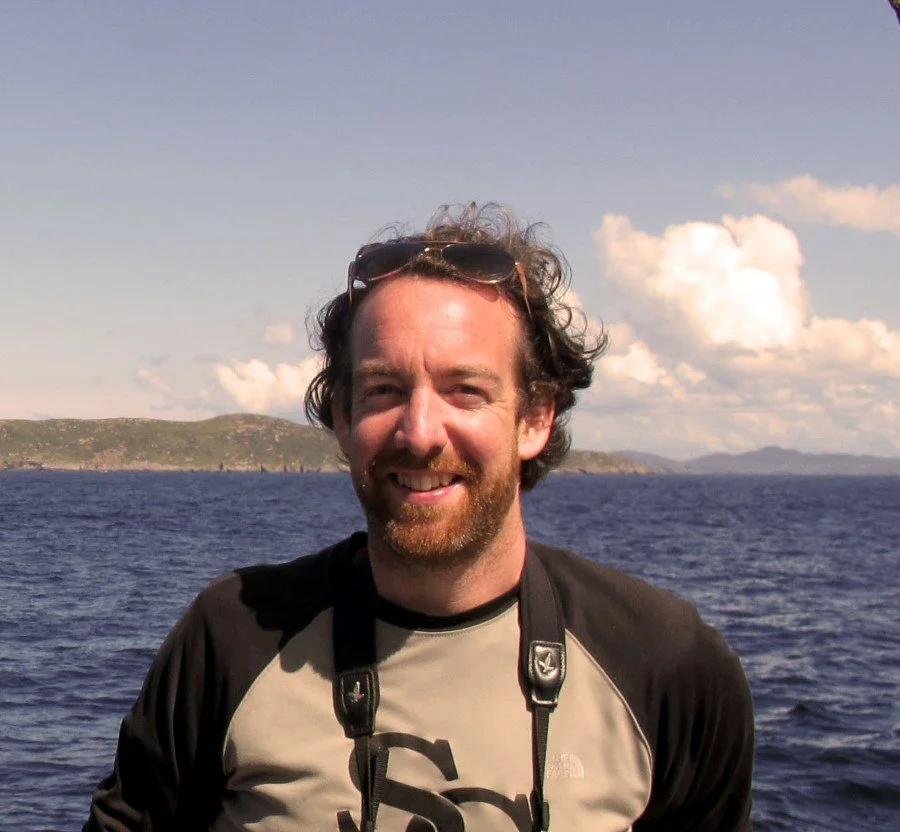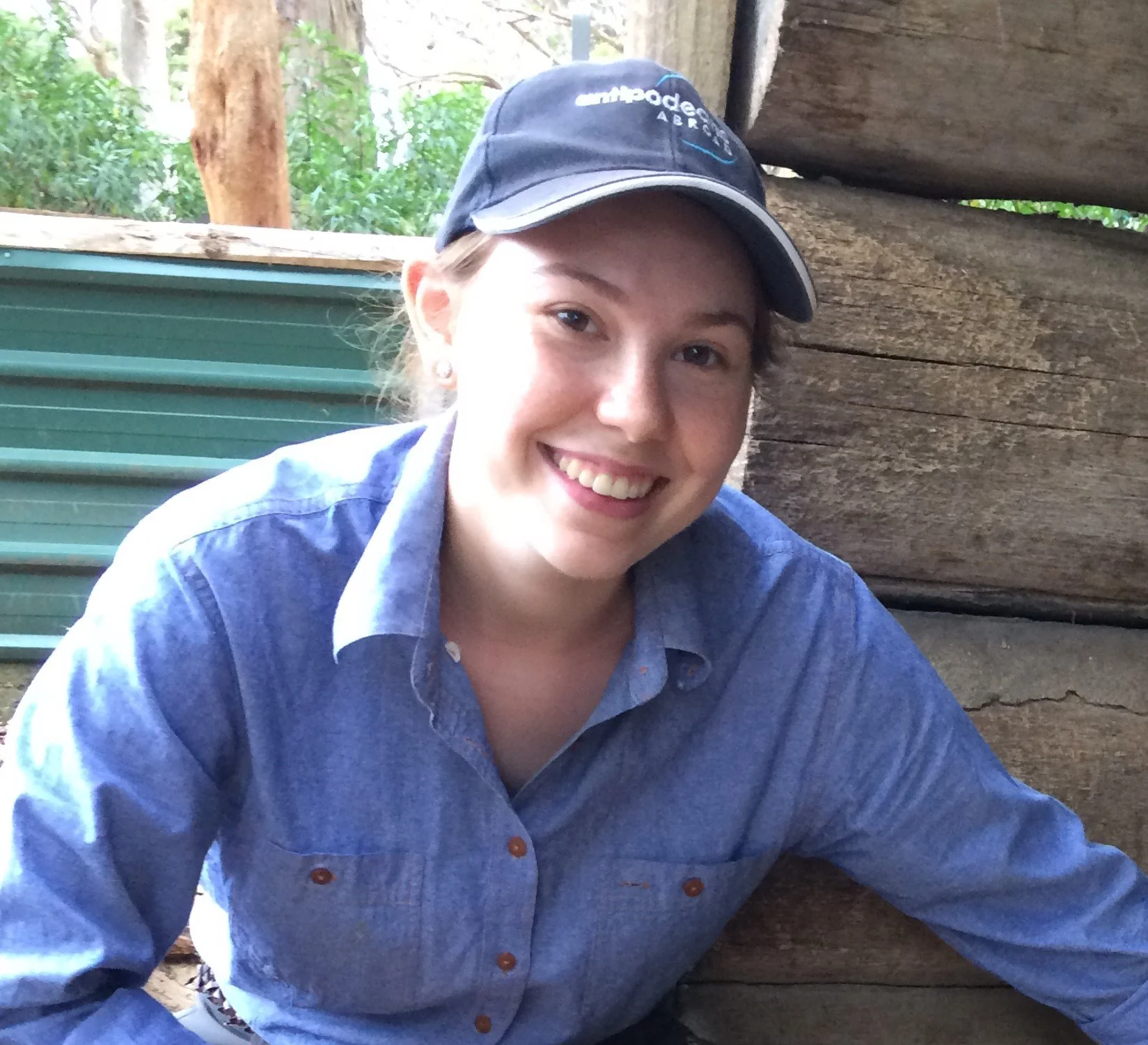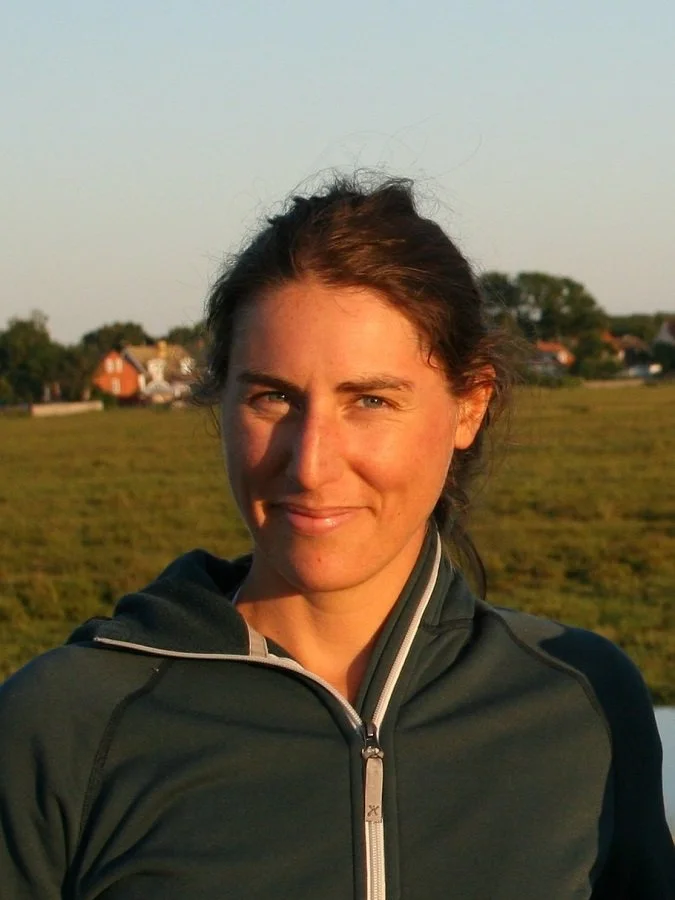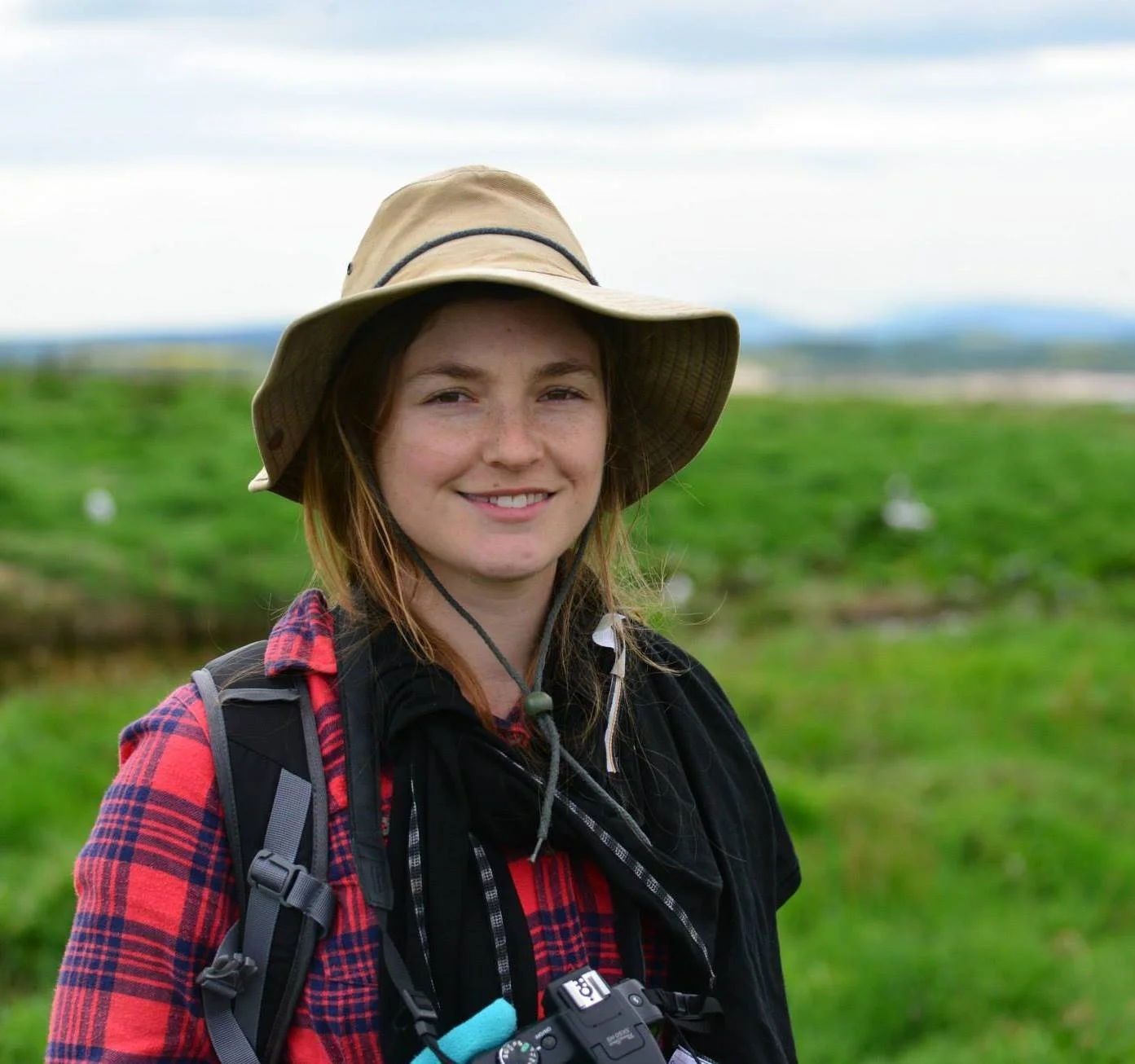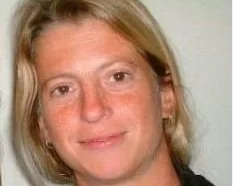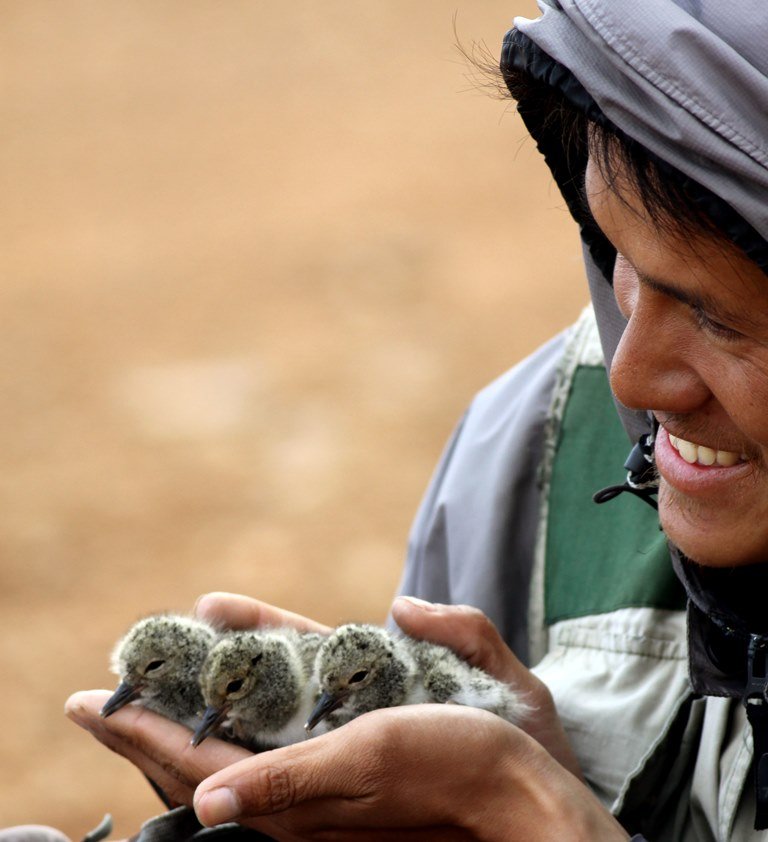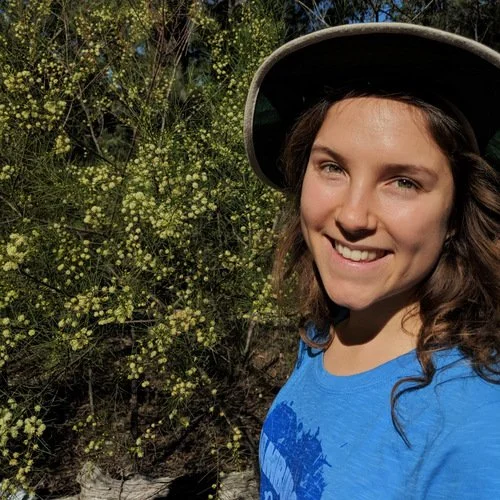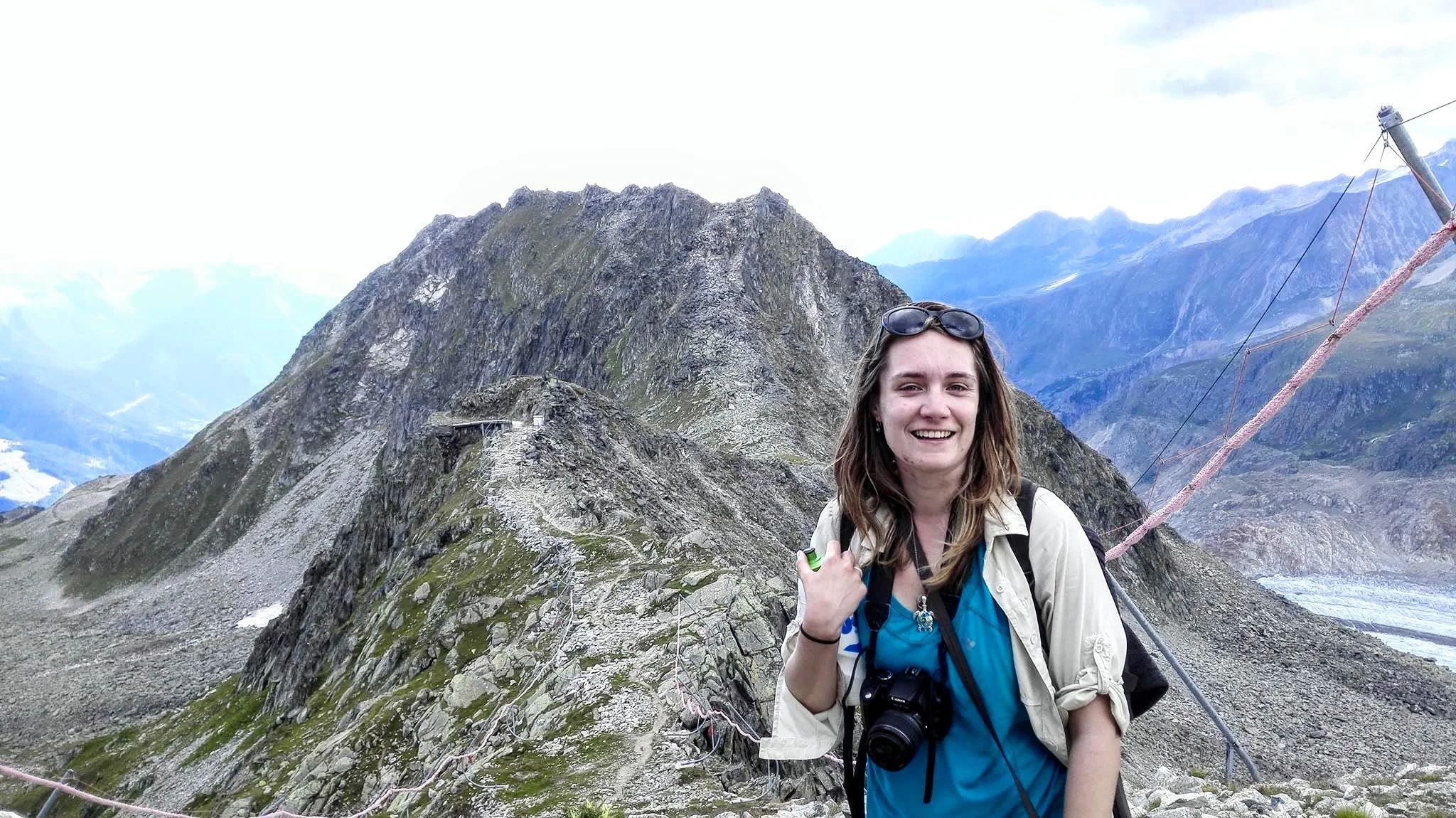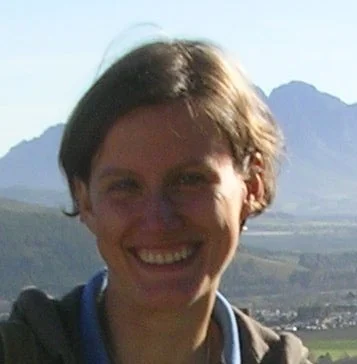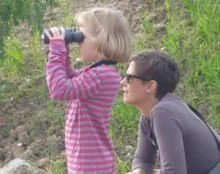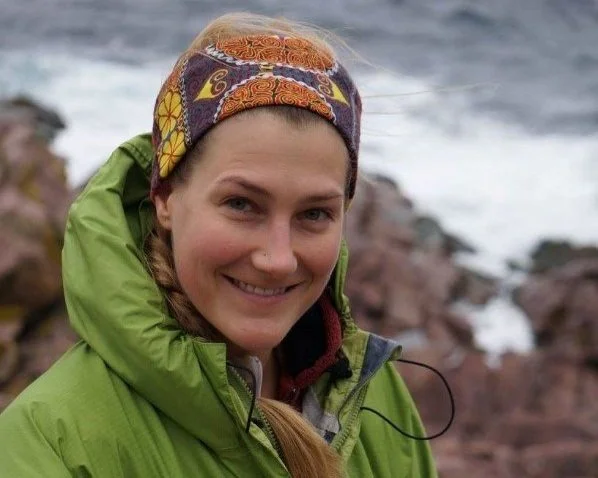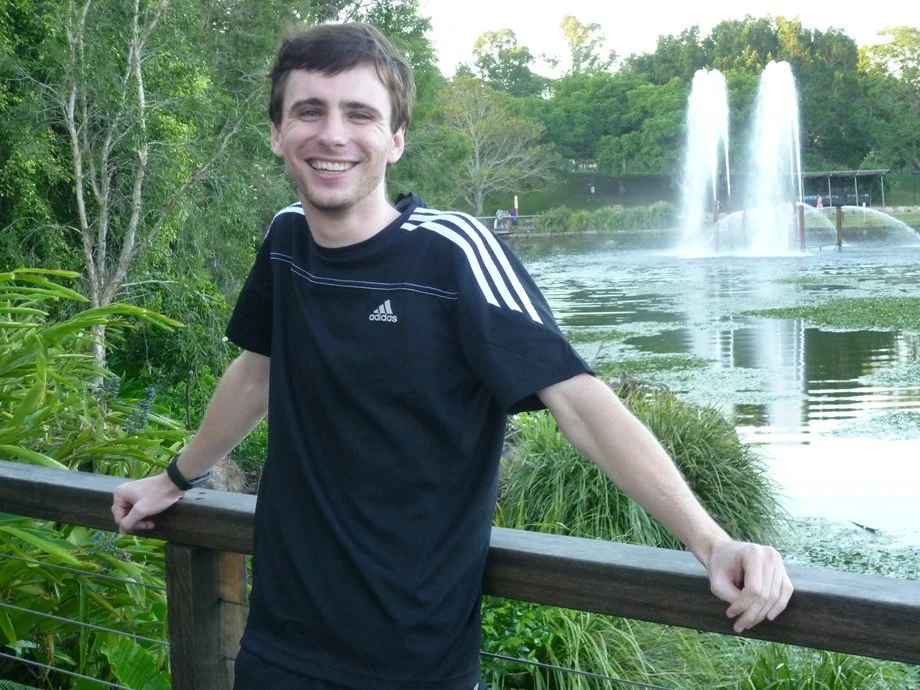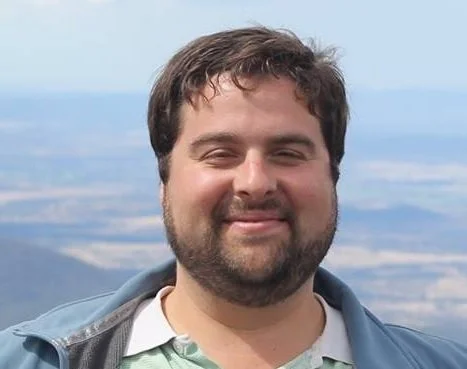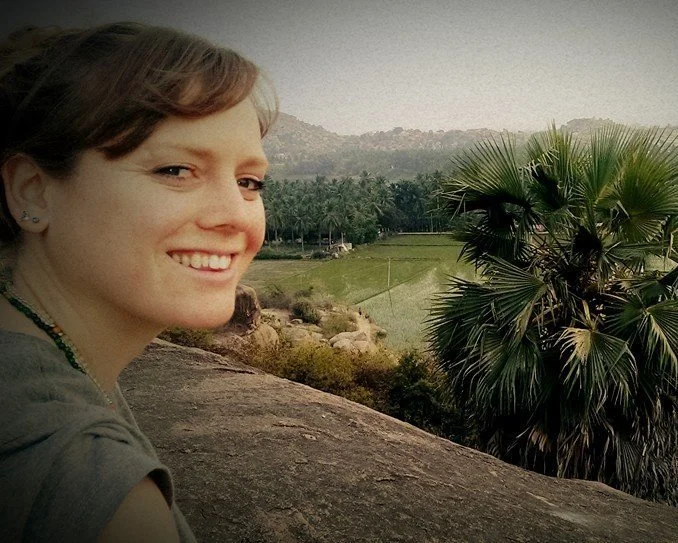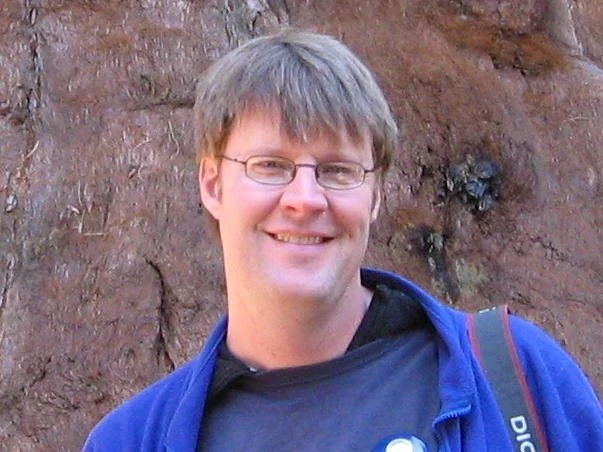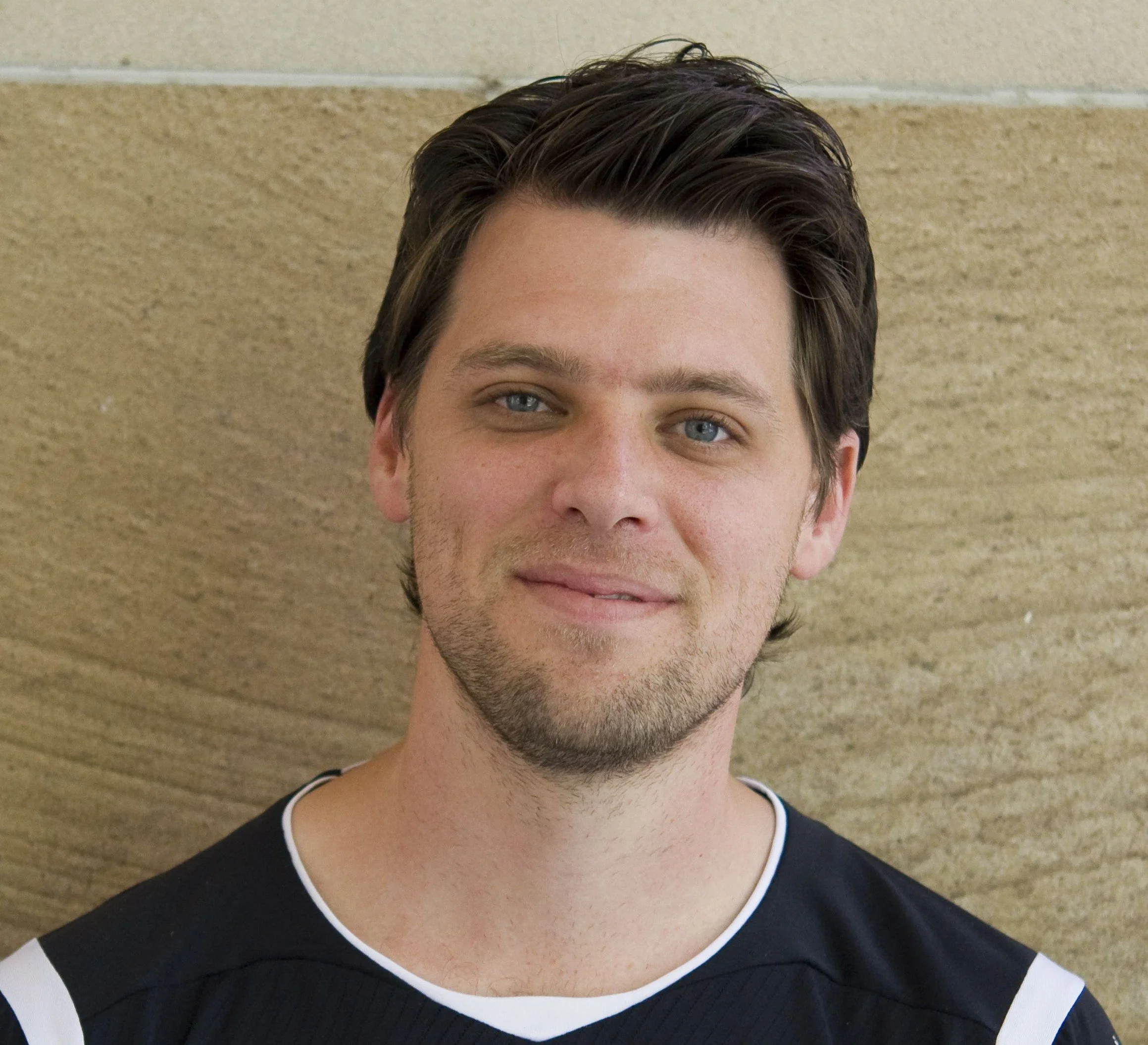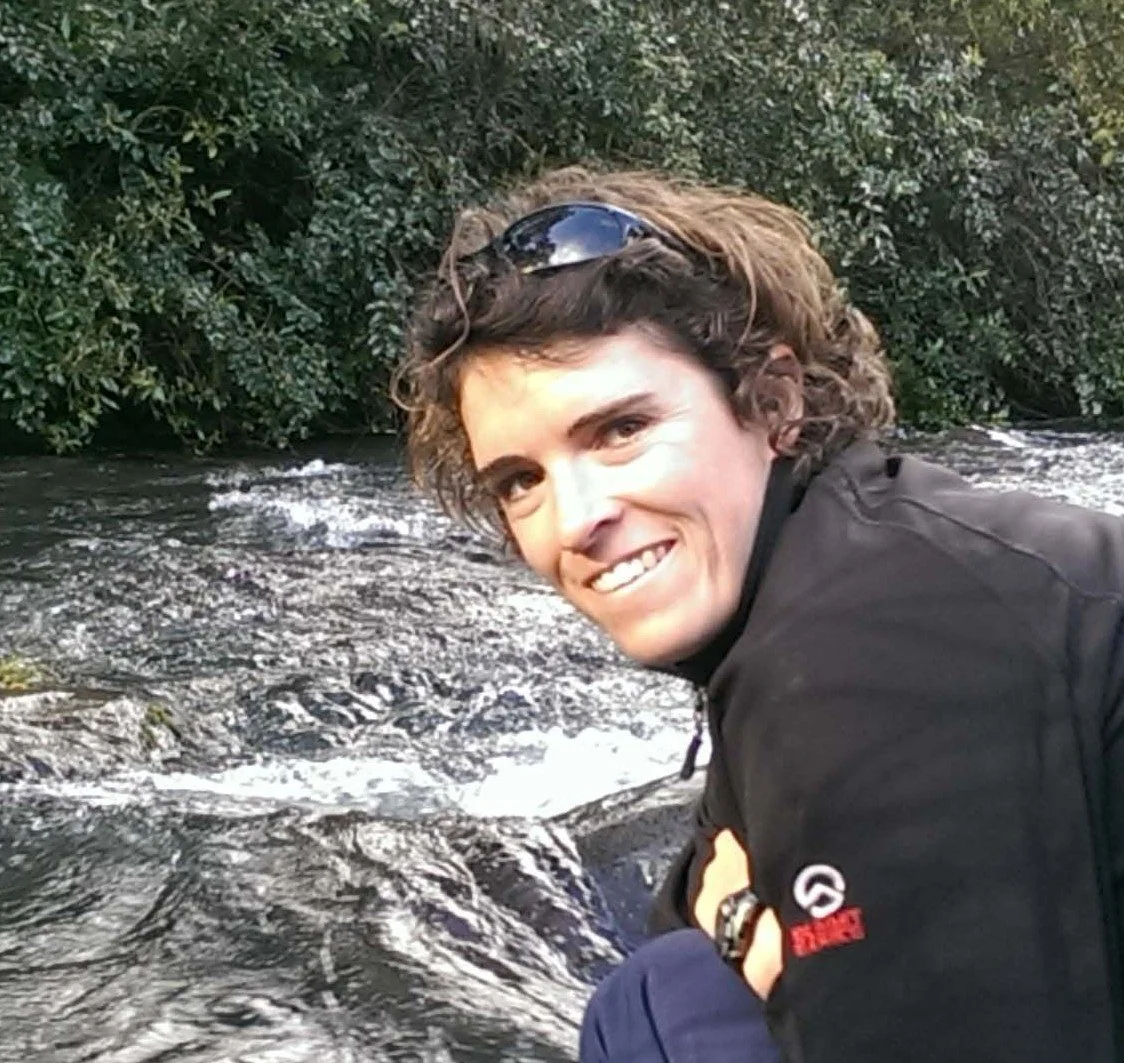Current Lab Members
-
Rich heads the research group. He is a professor in conservation and biodiversity, and has been at UQ since 2008. His research is focused on science to enable society to avert the extinction crisis, which is impacting biodiversity and human well-being globally. His work spans multiple disciplines, from the ecology and conservation of mobile species to understanding what explains variation in conservation concern among the human population.
Email: r.fuller@uq.edu.au
ResearcherID Profile: Click here
Google Scholar Profile: Click here
Location: Rm 522, Goddard Building 8
-
Violeta is a PhD candidate interested in socio-ecological ecosystems and the way humans impact natural environments and biodiversity in these landscapes. She is pursuing questions around the ways humans benefit from nature under the current pressures of rapid urbanisation and climate change, with a special focus in countries of the Global South. She is also working as a Senior Research Technician for the Translate project led by Tatsuya Amano, where they are seeking to understand how language barriers impede the application of science in conservation decision making and to assess the importance of scientific knowledge that is available in non-English languages. Before starting these two projects, she graduated with a BSc Environmental Engineering in Paraguay and a masters of Urban and Regional Planning at UQ.
Email: v.berdejoespinola@uq.edu.au
Location: Goddard Building 8
-
Tom was a Masters student in the Fuller Lab in 2018 and rejoined the lab for his PhD in 2021 working with Laura Sonter, Rich Fuller, and Nathalie Butt. Tom’s research mainly centres on conservation biogeography approaches to inform threat abatement, but he maintains interests in landscape ecology, spatial conservation planning, protected area effectiveness/permanence, and conservation telecoupling. Tom also volunteers for the Society for Conservation Biology Southeast Queensland Chapter (SCB SEQ), is on the steering committee for the International Congress of Conservation Biology (ICCB) 2025, and is a member of the IUCN World Commission on Protected Areas (WCPA) Wilderness Specialist Group.
Email: thomas.lloyd@uq.edu.au
ORCiD: see here
Instagram: see here
X: see here
Website: see here
-
Marina decided they wanted to be a Zoologist at the age of 7, so, when they were old enough, they moved away from their home town near Barcelona, in Catalunya, to go study in the UK at University College London. During their degree, they also studied abroad at UQ and, after graduating with a Masters in Biological Sciences (Zoology), they are now back to Australia as a PhD Candidate under the supervision of Dr Tatsuya Amano and Prof Richard Fuller. Marina hopes to uncover the current state of international environmental agreements and legislation around migratory bird protection worldwide. They are also interested in the effect of language barriers in Science, particularly on international migratory bird agreements across the world.
Email: corella.marina@gmail.com
ResearchGate Profile: see here
Twitter: see here
-
Josh grew up exploring the New South Wales countryside and through family camping trips and hikes developed a love for nature. He completed his undergraduate in aeronautical engineering and worked for three years designing, manufacturing, and testing prototype drones. Seeking a career that aligned with his values, Josh turned to conservation and is currently undertaking a PhD with the Fuller lab, where his project aims to assess what role drones could play in shorebird conservation. Josh strives to help arrest the rapid decline in biodiversity and is optimistic that we can create a world in which humans live sustainably with the natural environment.
Email: joshua.wilson1@uq.net.au
Location: Room 507, Goddard Building 8
-
Nicola is a PhD candidate researching biodiversity in urban areas, working with Professor Richard Fuller, Professor Sarah Bekessy, Dr Brenda Lin and Dr Angela Dean. Her work primarily uses large-scale datasets, including citizen science data, to research how birds and insects are affected by urban greenspaces. In an increasingly urbanized world, Nicola’s work has wide applicability for urban design and management globally. Nicola is also interested in human-nature interactions, and has contributed to high-impact journals and gained significant media attention for this research. Nicola is currently the HDR representative for the Centre for Biodiversity and Conservation Science Management Committee, and works as a Senior Research Assistant and tutor at UQ.
Email: n.sockhill@uq.edu.au
Google Scholar: see here
ResearchGate: see here
CBCS: see here
eBird: see here
iNaturalist: see here
-
Samantha Wong-Topp is a PhD candidate at The University of Queensland, School of The Environment, supervised by Professor Richard Fuller and Associate Professor Renee Zahnow. She is researching ethno-cultural variation in connection to urban nature, and its relationship with biodiversity. She also works as a Casual Academic and Research Assistant, holding roles at the University of Queensland and the Centre for Biodiversity and Conservation Science.
Prior to undertaking research, she worked as an Emmy-nominated journalist in Hong Kong, where she covered science and politics for a variety of publications including NBC News and VICE News. She holds a Bachelor of Arts (Geography) from The University of Melbourne and a Diploma of Science from The University of Queensland.Email: samantha.topp@uq.edu.au
-
Ed is a PhD student working on global governance for conserving migratory shorebirds under the supervision of Rich Fuller, Tiffany Morrison, and Salit Kark. Migratory species often require vast areas spanning multiple countries to complete their life cycle. In this context, various transnational institutional arrangements have emerged with relevance to their conservation. Shorebirds in Asia-Pacific, a region that has become to be known as the East Asian-Australasian Flyway, migrate across 22 countries. Despite the existence of an international policy framework for their conservation, their populations have continued to decline. Hence, appraising the effectiveness of such arrangements is paramount to inform conservation policy and practice. I am particularly interested in understanding the implementation of bilateral agreements, the role of non-state actors, and the performance of institutional arrangements on the ground.
Email: e.gallocajiao@uq.edu.au
ResearcherID Profile: Click here
Location: Rm 506A, Goddard Building 8
-
Xu is a PhD student researching the movement of Australian shorebirds using weather radar, supervised by Professor Richard Fuller and Assoc. Professor Jason Chapman. Weather radar is a powerful remote-sensing tool of flying birds that has yet been utilized to its potential in Australia, and Xu is working on characterizing the spatial-temporal pattern of shorebird migration, complementing manual surveys with radar product and eventually laying the foundation for a standardized radar-based monitoring scheme. Before commencing his PhD, Xu Obtained his MSc at the University of Freiburg and the Swiss Ornithological Institute working on insect and bird flight behavior. In China where he comes from, he worked for two years in NGOs promoting and conducting citizen science biodiversity surveys.
Email: sxluscinia@gmail.com
ResearchGate Profile: Click here
Twitter: Click here
-
Yang is a PhD candidate at Beijing Normal University studying shorebird migration in the East Asian-Australasian Flyway (EAAF) under Professor Zhengwang Zhang. He's currently a visiting student at the University of Queensland, working with Professor Richard Fuller. His research focuses on tracking the Pied Avocet in East Asia, a species doing well while other shorebirds decline. Yang aims to discover how this bird adapts to changes and use this knowledge to help conserve other shorebirds.
-
Nga-Yee is a PhD candidate studying global and regional waterbirds using global datasets to identify trends and drivers of changes in waterbird distribution, abundance, connectivity between regions and community structures, aiming to provide guidance to better protect waterbirds and inform wetland conservation policy development. She also works with CSIRO and the University of Hong Kong on her PhD project.
She has experiences in habitat and conservation management, ecological surveys and assessments, and local community and public engagement in nature conservation in Hong Kong and South China, in particular at Mai Po: a Ramsar Site designated for waterbirds. She worked for ecological consultant, NGO and government on nature conservation; such background built her interest in evidence-based conservations of regional and global waterbirds and their habitats. She received a BSc in Environmental Life Science from the University of Hong Kong, and an MSc in Applied Ecology and Conservation from University of East Anglia, UK with Chevening Scholarship award. She is also a keen birder and wildlife watcher.
Email: ngayee.lai@uq.net.au
Twitter (X): click here.
-
Chantelle Derez is a PhD candidate researching nuisance wildlife in urban areas and the impact of relocation as a management outcome. Many animals living in urban environments are considered nuisances and are relocated to new areas. This management technique is deemed successful if the animal does not return to the point of capture; however, the impact on the relocated animal is often unknown. A key focus of Chantelle’s PhD involves the long-term radio-tracking of resident and relocated carpet pythons to understand how urban pythons respond to relocation. Chantelle also holds an Honours degree in lizard behaviour from Flinders University and an MSc in Conservation Science from UQ, where she described a new species of snake in tropical Queensland.
Email: chantelle.derez@uqconnect.edu.au
-
Jenna is completing her honours project under the supervision of Professor Richard Fuller. Utilizing large-scale citizen science data, she is investigating the influence of various social and environmental factors on nature-based involvement within urban greenspaces. Motivated by an interest in how to enhance individuals’ connection to nature in an ever-growing developed urban setting, her work focuses on exploring the relationship between nature and community engagement within urban parks.
Email: j.bligh@uqconnect.edu.au
Former lab members
-
Jaimi has always been an animal-lover and can’t imagine doing anything other than conservation with her life. She got a Bachelor’s in Zoology from Colorado State University in the States and then spent a couple years working as a park ranger at Castlewood Canyon State Park in Colorado. During her undergrad, she studied abroad in Tasmania which inspired her to move back to Australia to obtain a Masters in Conservation Science at UQ. She is currently working under Prof. Richard Fuller to discover how political orientation affects voters’ support for pro-environmental policy and engagement in pro-environmental behaviors.
Email: j.mostellar@uq.net.au
-
Louis completed his Honours project in the Fuller Lab in 2022. His research primarily focuses on improving the ways we use citizen science data to answer ecological questions and address the biodiversity crisis. His other research interests include urban ecology, conservation of migratory species, and human-nature interactions. Louis has worked as a research assistant and tutor with academics across the School of the Environment. He graduated at the end of 2022 with a Bachelor of Advanced Science, and has now commenced a PhD at the University of St Andrews, working with Dr Alison Johnston within the Centre for Research into Ecological and Environmental Modelling.
Email: ljb38@st-andrews.ac.uk
Google Scholar: see here
iNaturalist: see here
eBird: see here
-
Micha is a PhD candidate researching migratory species response to changing habitat conditions resulting from human activity, using migratory shorebirds of the East Asian-Australasian Flyway, a highly threatened species group with an increasingly uncertain future, as a case study. She has a particular interest in stopover ecology and the human land use patterns driving habitat availability in highly altered and densely populated coastal landscapes. Micha graduated from Lawrence University (USA) with a Bachelor of Arts in Economics, Government and Environmental Studies after which she received a T. J. Watson Fellowship to investigate the implementation of marine conservation in Oman, Australia and Palau. She then spent 7 years working to support Indigenous land and sea management and associated wildlife research in northern Australia.
Email: m.jackson@uqconnect.edu.au
Location: Rm 508, Goddard Building 8
-
Lucy is a PhD candidate supervised by Professor Richard Fuller and Assoc. Professor Jonathan Rhodes. Lucy is interested in the social, environmental and health outcomes delivered by green space in urban environments and is currently exploring variation in green space provision and planning across the world’s most densely populated cities. With a background in ecology and conservation science, Lucy has 12 years professional experience within a range of industries including local government, ecological consulting, education and research. Lucy graduated from Griffith University with a Bachelor of Environmental Science and from University of Queensland with a Master of Science in Conservation Biology
Email: lucy.keniger@uqconnect.edu.au
Location: Rm 506A, Goddard Building 8
-
Shawan’s passion for nature started in his childhood, and deepened as an undergraduate at the University of Dhaka, Bangladesh. Shawan discovered butterflies in Dhaka are declining quickly, and he is monitoring how their populations fluctuate over time and space. His PhD at UQ focuses on the causes and consequences of butterfly migration with Prof Richard Fuller (primary supervisor) and Prof Myron Zalucki (co-supervisor).
Email: s.chowdhury@uqconnect.edu.au
ResearcherID Profile: Click here
Location: Room 508, Goddard Building 8
-
Rachel commenced her PhD at the University of Queensland in February 2018, and is supervised by Professor Richard Fuller. She is keen to investigate changes in human-nature interactions across time and space in tropical cities, and its relationship with local biodiversity and impact on conservation concern.
Rachel holds a Masters (2014) and Degree (2012) from the National University of Singapore, during which she spent a large amount of time as a treehugger. She has mucked around abandoned aquaculture ponds and mangroves in Sulawesi (Indonesia) doing mangrove rehabilitation , and has investigated niche preferences of trees and seedlings in forests on American Samoa.
Email: rachelohry@gmail.com
Location: Rm 506, Goddard Building 8
Twitter: Click here
-
Dali is a PhD student studying how to build biodiversity-friendly agriculture in Asia by different sources of citizen science data and high-resolution land-use maps, and use these to guide explicit prioritisation of landscape management actions. He is supervised by Dr Richard Fuller, Dr Martine Maron and Dr Tatsuya Amano. He has been a keen birder since 2001 and a research fellow of the Taiwan Endemic Species Research Institute since 2011, working on wildlife-habitat relationships, landscape ecology, citizen science, and avian ecology. His colleagues and he launched several citizen science projects in Taiwan, including Taiwan New Year Bird Count, Taiwan Roadkill Observation Network, and eBird Taiwan. Dali is also a keen writer and translator on popular science journals and books in Taiwan.
Email: dali.lin@uqconnect.edu.au
Location: Rm 507A, Goddard Building 8
EBird Profile: Dali Lin
Blog: Dali Lin
-
Jez is a PhD student studying the responses of seabirds to the Macquarie Island Pest Eradication Program. This builds on his background in applied conservation working with NGOs, especially on seabird conservation in the Pacific. He also has experience of the business-biodiversity interface, having worked with extractive industry managing biodiversity risk through project design and the mitigation hierarchy. This work related to the burgeoning social and environmental performance standards of multi-lateral financial institutions.
Email: jez.bird@uq.edu.au
Location: Room 507, Goddard Building 8
Twitter: Click here
-
Hannah is currently investigating the climate vulnerability of migratory shorebird species along their annual migration cycle as her Honours project. She has always been fascinated by the natural world. In the last five years, Hannah has become increasingly passionate in understanding the adaptive potential and evolution of species, as well as the effect of climate change on their survival. She graduated from the University of Queensland with a Bachelor of Wildlife Science in 2018. In the following year Hannah attained a Certificate IV in Captive Animals, which included several placements that allowed her to work with a variety of captive Australian species, including shorebirds.
Email: h.mullis@uqconnect.edu.au
Location: Rm 507a, Goddard Building 8
-
Brad is a postdoctoral research fellow studying the conservation and population ecology of migratory shorebirds of the East Asian-Australasian flyway. He is investigating causes of spatiotemporal heterogeneity in shorebird abundance and trends in the Great Sandy Strait and across Australia, and will use this information to develop management strategies for shorebirds and their habitats both domestically and abroad. Prior to joining the Fuller lab, Brad completed his PhD at the University of Guelph and MSc at Acadia University, where he studied the migration and population ecology of North American songbirds using individual-borne tracking devices and long-term demography studies.
Email: b.woodworth@uq.edu.au
Location: Room 507, Goddard Building 8
-
Anna is a visiting postdoctoral research fellow at the Fuller Lab, employed at Lund University, Sweden. Her research background is in landscape ecology and conservation biology, with a focus on pollinators in farmland landscapes. Her ongoing project is financed by the Swedish Research Council FORMAS, and focuses on how structure and quality of the urban environment affect two important groups of pollinating insects: native bees and hoverflies, and if any effects on pollinators translate into effects on pollination. The aim is to contribute to a scientific and evidence based foundation for planning of (ecologically) sustainable cities and to help maintain biodiversity of plant, pollinators and an important ecosystem service, in urban environments.
Email: anna.persson@cec.lu.se
Researcher ID Profile: Click here
-
Rochelle Steven is a Postdoctoral Research Fellow and project manages The role of citizen science in threatened species conservation and in building greater community support for threatened species management. Rochelle Steven’s previous research and professional experience includes themes on bird habitat conservation and management, engaging the general public in nature appreciation and sharing her passion for using native plants to create ecologically sustainable gardens. She recently completed her PhD examining the relationship between birders, avitourism and conservation. Rochelle has traveled to the United Kingdom for the world’s largest birdwatching festival, ‘BirdFair’, where she has conducted research about birders preferences and also promoted Australia as a premier birdwatching destination.
Email: r.steven@uq.edu.au
Location: Room 536, Goddard Building 8
-
Pati has always been interested in nature, especially in animals, this is why she studied to be a veterinarian. She loves observing and studying wildlife, this is how she ended up working for nine years in environmental consultancy, identifying species across Chile. In parallel, she had the opportunity to participate in research projects related to corridors, cats, and birds. Currently, she is working under Prof. Richard Fuller, developing her research project in Andean cat conservation in order to get her Master's in Conservation Science degree.
Email: p.vegagarrido@uqconnect.edu.au
-
Michelle is a PhD student currently based at Durham University and is being primarily supervised by Dr Stephen Willis. Her current PhD research similarly explores disturbance impacts of extreme weather events and land-use on arid zone bird species in Australia. The long-term repeat bird surveys will help to shed light on species movements across this little-studied region in times of plenty and in times of drought.
-
Lara received her Bachelor’s degree in Biology from Denison University in the US. She then completed a Master’s degree in Zoology at the University of Hawaii, designing a computerized model of a coral reef ecosystem. She is currently working on her PhD, and will be working on the topic ‘the extinction of experience and human interactions with nature.’ She is especially interested in how the benefits of nature are delivered, and what leads people to define themselves as connected to nature.
Email: l.franco@uq.edu.au
Location: Rm 507A, Goddard Building 8
-
Chi-Yeung Choi (aka Jimmy Choi) is a postdoctoral research fellow working on the Gladstone migratory shorebird monitoring project, which involves tracking local movement, modelling count data for transiting number and passage date estimates, and estimating carrying capacity. He is interested in animal behaviour, shorebird ecology and ways to mitigate human-wildlife conflicts. He has been studying migratory shorebirds since 2005 and involved in shorebird projects on the breeding grounds, migration stopping sites and non-breeding grounds along the East Asian-Australasian Flyway.
-
My studies in the Bachelor of Environmental Science have given me an appreciation for the interconnectedness of the natural world. Numerous soil science subjects have instilled in me an understanding of how fundamental soil is. Yet my passion lies with plants, people’s connection with nature, and the bigger picture. I found myself very interested in elective courses about sustainable development and holistic management of Earth’s ecosystem.
My interests culminated in my Honours thesis about the equity of the greenery in Brisbane. I discovered that some people have more greenery around them than others, that this wasn’t improving over time. To me, this is concerning due to the implications for people’s wellbeing and level of environmental concern in urban settings. So now I’m becoming a certified practitioner of Forest Therapy (Shinrin-yoku). I guide people to connect with nature and mindfully tune in to their senses to boost their health and wellbeing.”
-
Narelle has a dual degree from UQ in Science and Arts, majoring in Ancient History, English and Zoology. After graduation she received a scholarship from the University of Lausanne to research the impacts that conservation management practices were having on offspring fitness and sexual selection of the endemic whitefish. For her Honours project she is focusing on intertidal mudflats throughout the East Asian-Australasian Flyway; these habitats are critical sites for Australia’s migratory shorebirds, which have been experiencing rapid population declines in recent years. Due to the phenomenal distances that these birds migrate, it is internationally important to assess whether the protective mechanisms we have in place (protected areas, their designations, and management) are effective in minimising habitat and, thus, population loss.
Narelle is also an executive board member for the Society for Conservation Biology’s UQ-Brisbane chapter and Brisbane’s Presentations Coordinator for the Australian Marine Conservation Society.
-
Elizabeth is a postdoctoral research assistant based at University College London, working in Prof Georgina Mace’s lab. She is currently working on a joint project with UQ and the World Pheasant Association studying geographic range change over the last 200 years in the avian order Galliformes, quantifying the spatial patterns of change and investigating ecological and life history correlates of range change. Her research interests encompass spatial ecology, extinction risk, citizen science and captive breeding, her PhD focussing on the effects of inbreeding depression and purging on zoo populations.
-
Liz is a PhD candidate who is investigating child health and development benefits associated with urban nature. With a background in public health, she is particularly interested in how social and physical aspects of settings, such as cities, influence people’s health. Liz graduated from the University of British Columbia with a Bachelor of Human Kinetics, and from University of Queensland with a Master of Public Health.
Email: e.barber@uq.edu.au
-
Stephanie commenced her PhD at the University of Queensland in October 2015, supervised by Professors Hugh Possingham and Richard Fuller. Prior to moving to Australia, Stephanie worked as an environmental assessment biologist with Fisheries and Oceans Canada, and as a seabird research biologist with Environment Canada. In 2013, she earned her MSc from the University of British Columbia where she worked with Professor John Richardson and Dr. Jordan Rosenfeld.
Email: stephanie.averygomm@gmail.com
Website: Click here
Twitter: Click here
-
Jasmine completed her PhD in the Fuller Lab supervised by Richard Fuller, Aleks Terauds (AAD), Justine Shaw (UQ/AAD), Iadine Chades (CSIRO) and Hugh Possingham (UQ). Her PhD focused on conserving Antarctic biodiversity in the Anthropocene. In particular Jasmine’s work investigated how terrestrial biodiversity habitat (ice-free areas) is impacted by climate change, how changing sea level is likely to impact biodiversity, how Antarctic tourism might change with climate, and what conservation actions would provide the largest benefit to biodiversity. Jasmine is now working as a postdoctoral researcher in the Chown Lab at Monash University building a conservation plan for the Antarctic Peninsula.
Email: jasmine.lee@monash.edu
Twitter: Click here
-
Jeff completed his PhD at UQ supervised by Richard Fuller and Jonathon Rhodes. His PhD work created algorithms to design reserve networks that are resistant to environmental change and (indirectly) protect greater amounts of genetic diversity. Jeff is now undertaking a postdoctoral position in Portugal. His research concerns the challenges involved in conserving biodiversity. He is interested in understanding how areas can be managed to achieve conservation objectives for minimal cost. In particular, he specilizes in operationalizing ecological and evolutionary processes to develop plans for protected area systems that maximize the long-term persistence of biodiversity.
Email: jeffrey.hanson@uqconnect.edu.au
Twitter: Click here
Website: Click here
-
Michael Traurig completed his Masters of Conservation Science at UQ. He conducted a research project under the supervision of Hawthorne Beyer and Richard Fuller, looking at how incorporating connectivity between habitats influences the planning of conservation for migratory birds. Michael previously completed a bachelor of environmental science at Monash University in Melbourne, and has previously studied dolphin behaviour, toxicology of guppy fish, and assisted in monitoring of freshwater river health in Victoria.
-
Emily completed her honours project in the Fuller Lab in 2017 under the supervision of Assoc Prof Richard Fuller and Dr Angela Dean. Emily’s honours project explored how a range of nature experiences at a wildlife sanctuary and a national park impacted on an individual’s conservation behaviour and whether people were more likely to express conservation behaviours if they receive a greater wellbeing benefit from a particular nature experience. Emily is now undertaking her PhD in the Wilson Environmental Decisions Lab.
-
Hsien-Yung completed his PhD at University of Queensland in 2017 supervised by Prof Richard Fuller and Prof Hugh Possingham. He is interested in the conservation of diadromous fish since different habitat requirements during the different stages of their life history make them vulnerable to a range of different stressors and many migratory fish are under heavy harvesting pressure. Hsien-Yung’s PhD research used species distribution modeling specific to different life history stages, population modeling, conservation planning and land-sea connectivity for diadromous fish. Hsien-Yung is now working for the Department of Fisheries and Wildlife at Michigan State University.
-
Rob Clemens was a PhD candidate in the Fuller Lab researching the impacts of pulses in resource availability on migratory species, using migratory shorebirds that use Australia’s ephemeral wetlands as a case study. His research was focused on characterising the dynamics of pulses in migratory shorebird habitat suitability across the Australian continent, and then identifying how those pulse dynamics impact both migratory shorebird populations and when and where we might manage water for migratory shorebirds in Australia.
-
Lachlan completed his PhD at UQ 2017, and was primarily supervised by Dr Margie Mayfield. Lachlans research improved understanding of the drivers of plant successional processes and community assembly within abandoned pasture adjacent to rainforests in tropical countryside landscapes. He is interested in the dynamics of seed dispersal and is investigating how avian seed dispersers use isolated pasture trees in the Wet and Sub-Tropics of Australia, Colombia and Nigeria.
-
Jeremy completed his BSc. Zoology/Ecology and honours studies at UQ in 2010. After working as a research assistant for Dr Scott Burnett at the University of the Sunshine Coast and Dr Jonathan Rhodes at UQ in 2011, Jeremy joined the Fuller Lab to undertake a PhD. Jeremy’s PhD project was a collaboration with the Australian Wildlife Conservancy and investigated how conservation fences can be used as a tool to minimise extinctions of Australian mammals, including the critically endangered Burrowing bettong (Bettongia lesueur) and Brush-tailed bettong (Bettongia penicillata). Jeremy is now undertaking postdoctoral work at the University of Hawaii looking at optimal managment strategies for feral pigs in O’ahu.
-
Danielle was a postdoctoral research fellow with the Fuller Lab until 2016. She explored how the extinction of experience influences both physical and mental human wellbeing in urban landscapes. She is particularly interested in identifying ways that urban nature can be enhanced to deliver benefits for people and biodiversity. Danielle is now working at Zealandia in Wellington, NZ where she is the manager of conservation, research, learning and experience. Danielle also serves as a board member for the Society of Conservation Biology Oceania.
